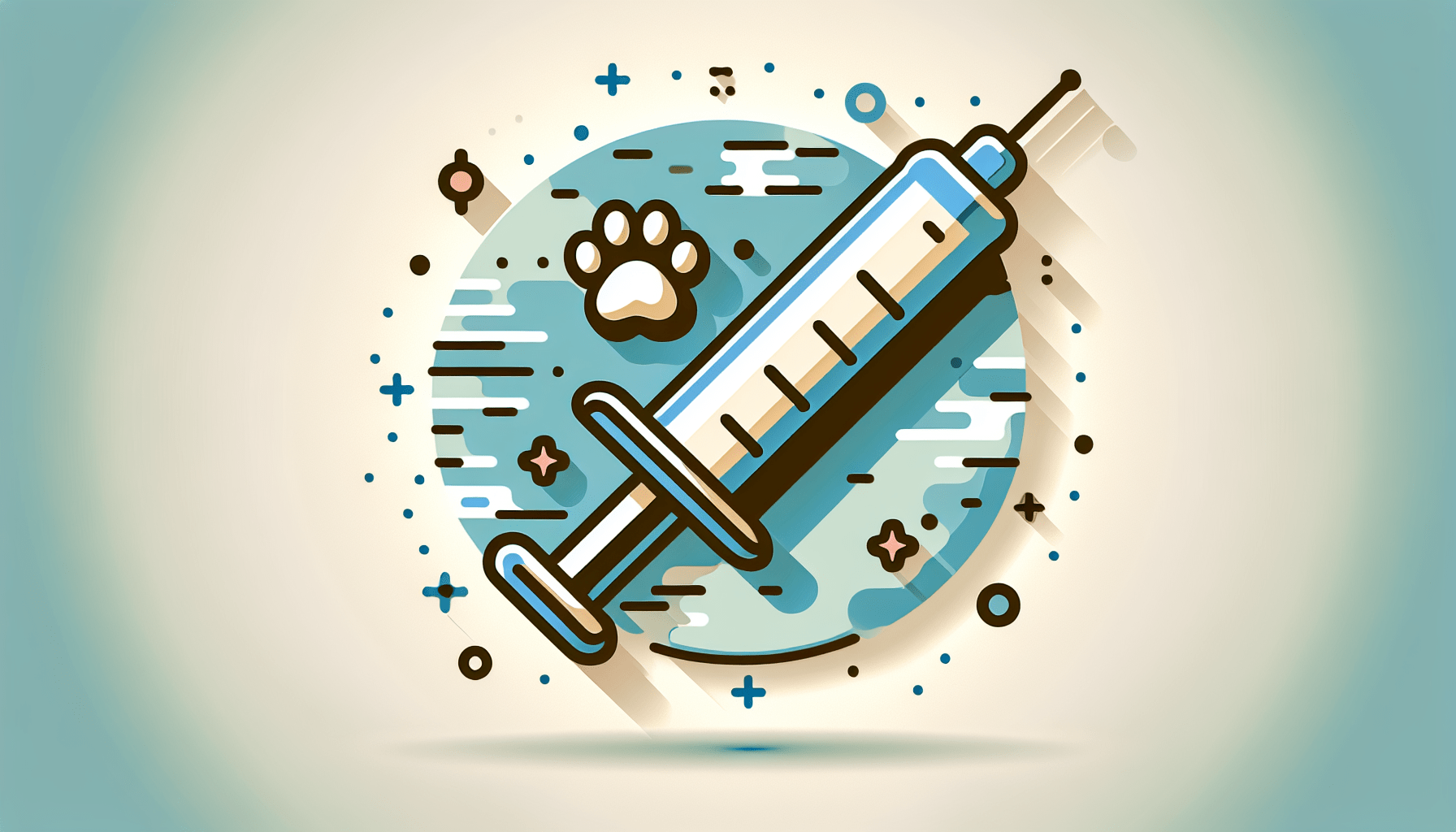Welcome to our article on essential vaccinations for dogs! Ensuring your furry friend is up-to-date on their vaccinations is fundamental in protecting their health and well-being. In this article, we will discuss the core vaccinations every dog should receive to safeguard against potentially deadly diseases. Stay informed and keep your canine companion safe and healthy with the right vaccinations. Have you recently brought home a new furry friend, or are you a seasoned dog owner looking to make sure you’re up to date on your dog’s vaccinations? Ensuring that your canine companion is properly vaccinated is essential for their health and well-being. In this article, we will guide you through the essential vaccinations for dogs, why they are important, and what you need to know to keep your pup healthy and happy.
Why Are Vaccinations Important for Dogs?
Vaccinations are crucial for protecting your dog from a variety of preventable illnesses and diseases. Just like in humans, vaccinations help their immune system fight off harmful pathogens that can make them sick. By vaccinating your dog, you are not only protecting them but also helping to prevent the spread of contagious diseases to other dogs they may come into contact with.
Protecting Your Dog’s Health
Just like humans, dogs can get sick from a variety of infectious diseases. Vaccinations help protect your furry friend from these illnesses by stimulating their immune system to create antibodies that fight off the specific pathogens they may encounter. By vaccinating your dog, you are taking a proactive step to keep them healthy and prevent the need for costly and potentially life-threatening treatments later on.
Preventing the Spread of Disease
In addition to protecting your own dog, vaccinations also help prevent the spread of contagious diseases to other dogs in your community. By ensuring that your dog is up to date on their vaccinations, you are helping to create a safer and healthier environment for all dogs to enjoy.
Essential Vaccines for Dogs
Now that you understand why vaccinations are important for your dog, let’s discuss the essential vaccines that every dog should receive. The specific vaccines your dog needs may vary based on factors such as their age, lifestyle, and risk of exposure to certain diseases. However, there are some core vaccines that are recommended for all dogs.
Core Vaccines
Core vaccines are considered essential for all dogs, regardless of their individual risk factors. These vaccines protect against diseases that are widespread, highly contagious, and can be severe or even fatal in dogs. The core vaccines for dogs include:
| Vaccine | Disease(s) Protected Against | Recommended Frequency |
|---|---|---|
| Rabies | Rabies | Every 1-3 years* |
| Distemper | Canine Distemper | Every 3 years |
| Parvovirus | Canine Parvovirus | Every 3 years |
| Adenovirus | Canine Hepatitis | Every 3 years |
*Frequency of rabies vaccination may vary based on local laws and regulations.
Non-Core Vaccines
In addition to core vaccines, there are also non-core vaccines that are recommended based on your dog’s individual risk factors. These vaccines protect against diseases that are less common or may be specific to certain regions or lifestyles. Some examples of non-core vaccines for dogs include:
| Vaccine | Disease(s) Protected Against | Recommended Frequency |
|---|---|---|
| Leptospirosis | Leptospirosis | Annually |
| Bordetella | Kennel Cough | Annually |
| Canine Influenza | Canine Influenza | Annually |
| Lyme Disease | Lyme Disease | Annually |
Your veterinarian can help you determine which non-core vaccines are appropriate for your dog based on their individual risk factors and lifestyle.

Puppy Vaccination Schedule
Puppies are especially vulnerable to infectious diseases, so it is important to start their vaccination schedule early to protect them during this critical period. Here is a general guideline for the recommended vaccination schedule for puppies:
6-8 Weeks
- Core Vaccines: Distemper, Parvovirus, Adenovirus
- Non-Core Vaccines: None
10-12 Weeks
- Core Vaccines: Distemper, Parvovirus, Adenovirus, Rabies
- Non-Core Vaccines: Leptospirosis, Bordetella
14-16 Weeks
- Core Vaccines: Distemper, Parvovirus, Adenovirus, Rabies
- Non-Core Vaccines: Leptospirosis, Bordetella, Canine Influenza, Lyme Disease
Following this schedule will help ensure that your puppy is protected against a variety of common diseases and begins building their immunity at an early age. Remember to consult with your veterinarian to tailor the vaccination schedule to your puppy’s specific needs.
Adult Dog Vaccination Schedule
Once your dog reaches adulthood, they will need to continue receiving regular vaccinations to maintain their immunity against various diseases. Here is a general guideline for the recommended vaccination schedule for adult dogs:
Annually
- Core Vaccines: Distemper, Parvovirus, Adenovirus, Rabies
- Non-Core Vaccines: Leptospirosis, Bordetella, Canine Influenza, Lyme Disease
Regularly updating your dog’s vaccinations will help ensure that they remain protected against preventable diseases throughout their life. Your veterinarian may recommend additional vaccinations based on your dog’s individual risk factors and lifestyle.

Vaccination Side Effects
While vaccines are generally safe and effective, some dogs may experience mild side effects after receiving their vaccinations. Common side effects may include:
- Mild swelling at the injection site
- Low-grade fever
- Lethargy or decreased appetite
Most side effects are mild and resolve on their own within a few days. However, if you notice any unusual or severe symptoms in your dog after vaccination, such as allergic reactions, vomiting, or difficulty breathing, contact your veterinarian immediately.
Conclusion
Ensuring that your dog is up to date on their vaccinations is one of the most important steps you can take to protect their health and well-being. By following a regular vaccination schedule, you are not only safeguarding your own dog but also contributing to the overall health of the dog community. Remember to consult with your veterinarian to determine the best vaccination plan for your dog based on their individual needs and risk factors. With proper vaccinations and care, you can help your furry friend live a long, happy, and healthy life.

